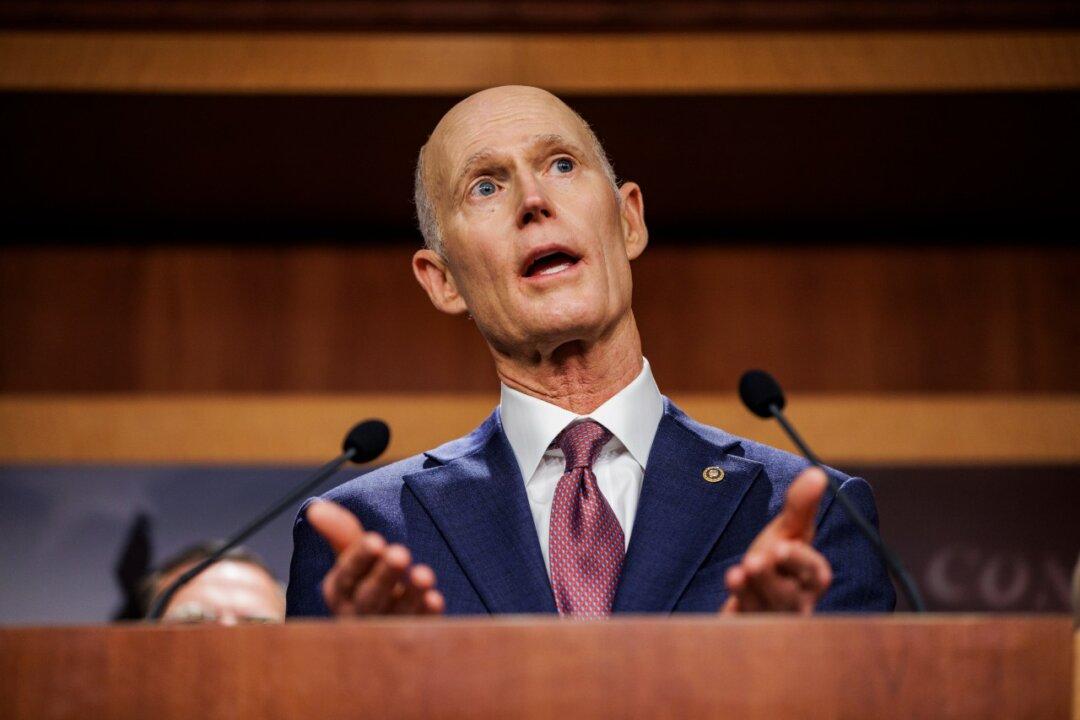Eight conservative Republican senators are throwing up a potential roadblock as Congress races toward a March 11 deadline to pass a new omnibus spending bill or face the prospect of a government shutdown.
“Last month, our nation hit a grave milestone, surpassing $30 trillion in federal debt,” the eight told Senate Majority Leader Chuck Schumer (D-N.Y.) in a letter the day after President Joe Biden’s State of the Union address.





